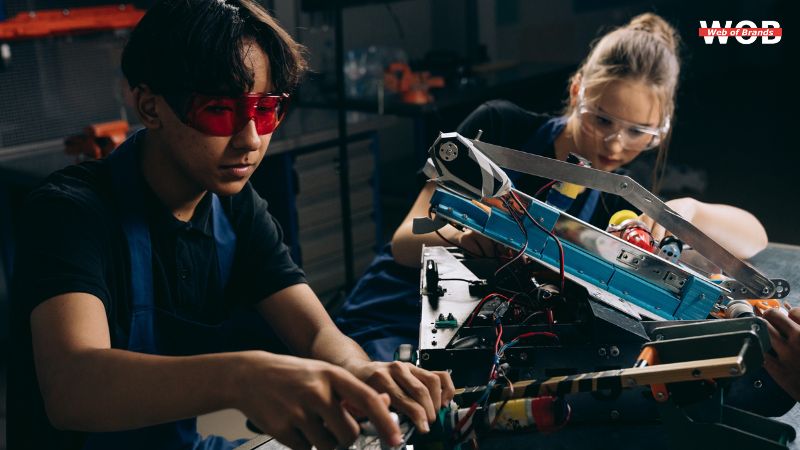Artificial intelligence (AI) typically elicits one of two strongly held reactions: excitement or fear. Not unexpectedly, with investments in the technology increasing throughout APAC, AI-related debates took center stage in 2023.
In fact, a 67% rise in AI and machine learning investments throughout the region is predicted by 2024, according to American AI and machine learning company Daitaiku.
AI is no longer a novelty in Southeast Asia; rather, it is now the best marketing aid. This is particularly true for generative AI applications, which have accelerated the process by which marketers have produced more engaging, personalized content and one-of-a-kind experiences that connect with consumers.
For instance, it may eliminate friction at almost any stage of the customer experience and free up human agents to do more difficult and sophisticated decision-making jobs when integrated with chatbots and client engagement.
“The emergence of generative AI has sparked a revolution in customer service technologies, making it possible to move from simple chatbots to intelligent digital agents,” Multiverse Partners managing partner Basil Chua said.
Chua continued, “These intelligent digital agents can converse in multiple languages, respond to complex inquiries, give directions, and assist customers with purchases.”
Adoption of generative AI is now a corporate must rather than a passing fad.
How can smaller businesses better adopt it?
In contrast to a significantly lower 57% of business respondents in large firms, 71% of business respondents in SMEs reported using generative AI tools in their position, according to a research done among Singaporean company respondents.
According to HubSpot’s senior vice president of global customer success Jon Dick, “SMEs looking to adopt AI capabilities should consider doing so progressively instead of attempting to overhaul the whole organization at once.” “This makes the process more manageable in terms of cost and change management.”
Business executives should start by identifying specific use cases—like customer service or data analytics—within the company that AI can handle. Then, they can search for affordable solutions that can be expanded to meet the demands of the organization.
“Companies are trying to reduce the amount of technology tools that their employees have to utilize and switch between in order to complete tasks. Employee adoption can be greatly aided by selecting a platform with built-in AI-powered solutions and ease of use, according to Dick.
Furthermore,
After all, when AI is used in tandem with human creativity, the best outcomes are achieved.
According to Chua, companies planning to implement AI should also think about ethical innovation, algorithmic biases, data privacy, intellectual property, and long-term AI safety in addition to rules and compliance.
Businesses thinking about implementing generative AI could start with Singapore’s innovative and forward-thinking AI frameworks, like “AI Verify” and “Model AI Governance Framework for Generative AI.”
Within the next three years, 41% of Malaysian CEOs anticipate significant effects on their businesses, workforces, and markets.
Specifically, 82% predict that the development of workforce skills will be necessary in response to the rise of Gen AI, which is higher than the worldwide (69%) and Asia Pacific (76%) percentages. PwC’s 27th Annual Global CEO Survey (Malaysia) indicates this.
Even with this awareness, 50% of Malaysian CEOs who participated in a poll acknowledge that their organizations have not implemented Gen AI in the last 12 months.
Prime Minister Datuk Seri Anwar Ibrahim urged Malaysians to adopt AI in January of this year, warning against falling behind.
He clarified that AI is a sector that needs to be grasped immediately, much like other emerging technologies, and that this rapid advancement in technology needs to be welcomed.
AI’s limits
According to a recent HubSpot survey, by 2024, 61% of customer care representatives worldwide would employ automation and artificial intelligence. Nevertheless, it remains an ongoing project.
Chua claims that AI is “good enough” for large-scale business application, including customer interaction and engagement, having achieved an early stage of maturity. Still, it is unable to perform a sales or customer action—something that only human agents are capable of doing.
Additional constraints, according to Dick, include the need to confirm that the answers given by AI are factually correct and capable of fixing problems or living up to client expectations.
“Human assistance may still be necessary for customer concerns that are emotionally sensitive, complex, or high-risk in nature. In many situations, AI cannot replace a human’s sympathetic or empathic response because it lacks emotional intelligence or the “human touch,” according to Dick.
“Or risk creating a disconnect with their customers and losing their trust altogether, companies would need to strike the right balance between using technologies to work faster and still deliver an authentic customer experience.”
Nevertheless, generative AI’s strength lies in its ongoing learning and development. According to Dick, chatbots of the future will be more intelligent and human-like; they will be able to recognize emotions and mimic speech patterns.
Dick went on, “More importantly, AI capabilities will extend beyond just answering questions; they will also allow AI to create original content and perform tasks that would otherwise fall under the purview of the human workforce.”




